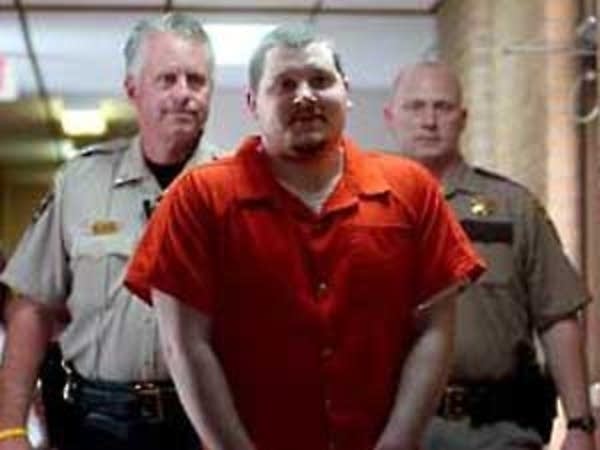South Dakota execution delayed

Gov. Mike Rounds and Attorney General Larry Long announced the decision to delay the execution late Tuesday afternoon. The announcement came just moments after alerting the penitentiary warden to stand down the execution team, and hours before Page was scheduled to be put to death.
The state law that details how an execution is to be carried out was written in 1984. Lawmakers haven't touched it since. It details the use of two drugs to be administered until a physician declares the inmate dead. Common practice in a lethal injection execution now calls for a three-drug combination. Rounds said officials were trained and planned to use the three drug combination.

"I decided that I will not put state employees in a position of violating this particular statute," said Rounds. "I will not put those citizens of South Dakota who are to be witnesses of this execution to be in a position of witnessing an execution that very well may have been challenged or identified at a later date of being an illegal execution."
Rounds said the reprieve is in place until July 1, 2007, so lawmakers have time to bring the law into line with the common practices of lethal injection.
Create a More Connected Minnesota
MPR News is your trusted resource for the news you need. With your support, MPR News brings accessible, courageous journalism and authentic conversation to everyone - free of paywalls and barriers. Your gift makes a difference.
Page was sentenced to die by lethal injection in 2001 after pleading guilty to the torture and murder of Chester Poage, 19. Page and two of his friends set out to rob Poage. But in order to prevent Poage from reporting the robbery, they killed him.
Earlier this year the South Dakota Supreme Court upheld the sentence, and that's when Elijah Page made his request to end any future appeals. A judge ruled two weeks ago that Page was mentally competent to make the decision and would die this week.

Rounds said normally when an execution date is set, there are years of delay before it's carried out.
"In this case, with Mr. Page asking to move forward immediately, it did not allow the Legislature the opportunity to review the statutes," said Rounds.
There are still plenty of legal questions about the death penalty in the United States. South Dakota is one of 37 states that use lethal injection as its form of execution.
Another inmate on South Dakota's death row is challenging the constitutionality of lethal injection. It's one of a number of cases around the country that claim lethal injection causes pain, making it cruel and unusual punishment.
Attorney General Larry Long said the method of lethal injection could be questioned even after lawmakers update state statute.
"He was convicted at the time when there was a two-drug protocol in the statute. If the statute is changed to a three-drug protocol, I think a likely result is he'll get a choice between a two-drug protocol and a three-drug protocol when and if he gets to the point of execution," said Long.
Long says Page was aware of the differences between state law and the planned method of execution, and he waived his right to challenge it. But Long and Gov. Rounds say they'll err on the side of caution. There are currently four men on death row in South Dakota.
